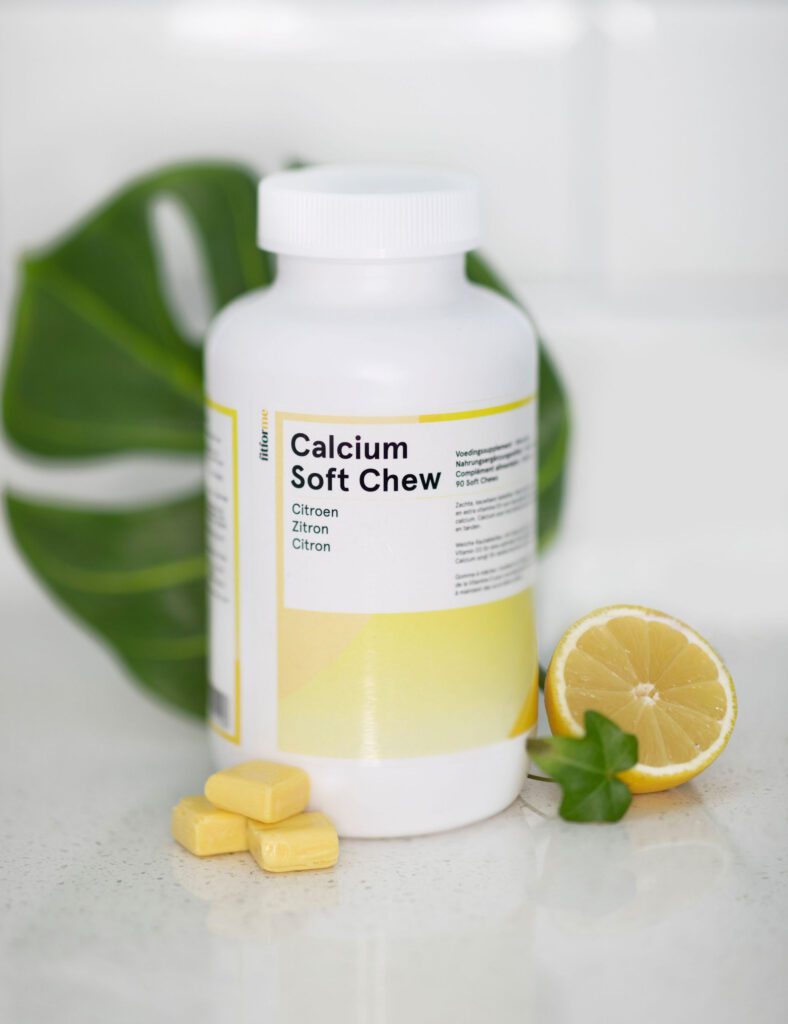
Trusted by 140,000+ people for their vitamin and mineral needs

Trusted by 140,000+ people for their vitamin and mineral needs

Trustpilot score: 4.4 out of 5
What you need to know about calcium
Calcium, no human can live without it! What exactly is calcium and what is it good for? And why do you need calcium after weight loss surgery? In this blog you will read everything you need to know about calcium.
What is calcium?
Calcium is an essential mineral for strong bones, teeth and muscles. Our body consist of 1 to 2 percent calcium. That makes calcium the largest mineral present in your body. Your bones store calcium. Therefore, 99% of the total amount of calcium is found in bones and teeth. The remaining 1% is in the blood, body fluids and cell membranes. There are different forms of calcium such as calcium phosphate, calcium carbonate, and calcium nitrate. Calcium citrate is an organic compound that your body absorbs better than non-organic compounds. You also need vitamin D to absorb calcium properly in your intestines.
What foods contain calcium?
Dairy is the main source of calcium, such as milk, cheese, yogurt and cottage cheese. In addition, sardines, legumes and vegetables such as kale, spinach and broccoli are natural sources of calcium. You can also supplement your daily dose of calcium with calcium supplements. Salt, alcohol and caffeine (tea, coffee and cola) actually cause you to excrete calcium.
Why is calcium good for you?
Calcium plays an essential role in bone formation. It also helps maintain strong bones and teeth. In addition, calcium is good for the muscles and nervous system. It supports the production of cells and tissues, and stimulates digestion and blood clotting. In short, calcium is a nutrient we cannot do without.
- Bone formation and maintenance of strong bones and teeth
- Good for muscles
- Good for the nervous system
- Supports blood clotting
- Supports digestion
- Helps in the production of cells and tissues
What happens in case of a calcium deficiency?
Many people do not get enough calcium, because they don't eat and drink enough calcium-rich foods or can't tolerate lactose. In addition, your body absorbs less calcium as you get older. There is also a high risk of calcium deficiency after weight loss surgery. This is because you eat and absorb less calcium. Your body tries to keep calcium levels in your blood equal as much as possible. If your calcium intake and blood calcium levels are too low, calcium will be released from your bones. This can have a negative effect to your bones. Also, it can cause your teeth deteriorate faster. To prevent this, you need extra calcium.
How much calcium do I need per day?
Exactly how much calcium you need per day is different for each person. For example, it depends on your age and gender. And so also whether you have had a stomach reduction. After a Gastric Sleeve, Gastric Bypass and Mini Gastric Bypass you need 1200 to 1500 milligrams of calcium per day. For a BPD/-DS you need as much as 1800 to 2400 milligrams per day. Depending on what you eat, you can get some of that from food. But that is also different for everyone. These are recommendations from the American Society for Metabolic and Bariatric Surgery. It may differ from your doctor's advice. Therefore, discuss with your doctor or dietitian what is best for you.
Calcium after weight loss surgery: what to be aware of
- Take calcium supplements daily to supplement your diet
- Preferably calcium citrate. You absorb this form of calcium best
- Your body cannot process more than 500 milligrams of calcium at a time. Therefore, spread the supplements over 2 to 3 times a day
- Calcium reduces the absorption of iron. Iron is an important mineral often found in multivitamins
- Do not take calcium, both food and supplements, at the same time as iron. Make sure there is at least 2 hours between a multivitamin, dairy products or calcium supplements
How to prevent calcium deficiency
You don't notice a calcium deficiency directly, yet the consequences can be very serious. Therefore, make sure you get enough calcium every day. Calcium Soft Chew is our chewing vitamin with calcium citrate, a form of calcium that you can absorb and tolerate well. Calcium Soft Chew also contains vitamin D3 to help you better absorb calcium. Available in a fine, soft texture and fresh taste.
Have questions about calcium after your weight loss surgery? Schedule a free consultation with our dietitian now.






